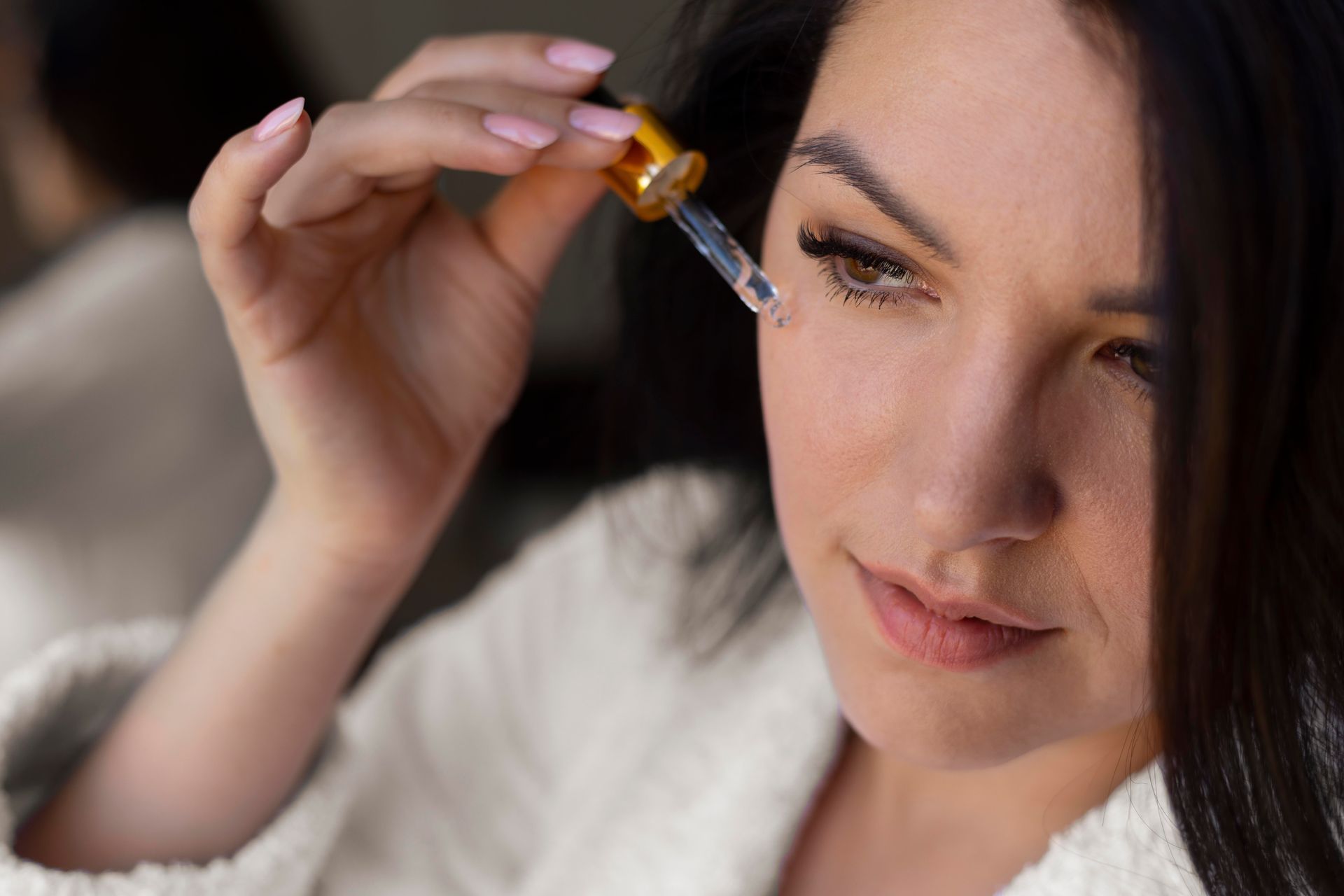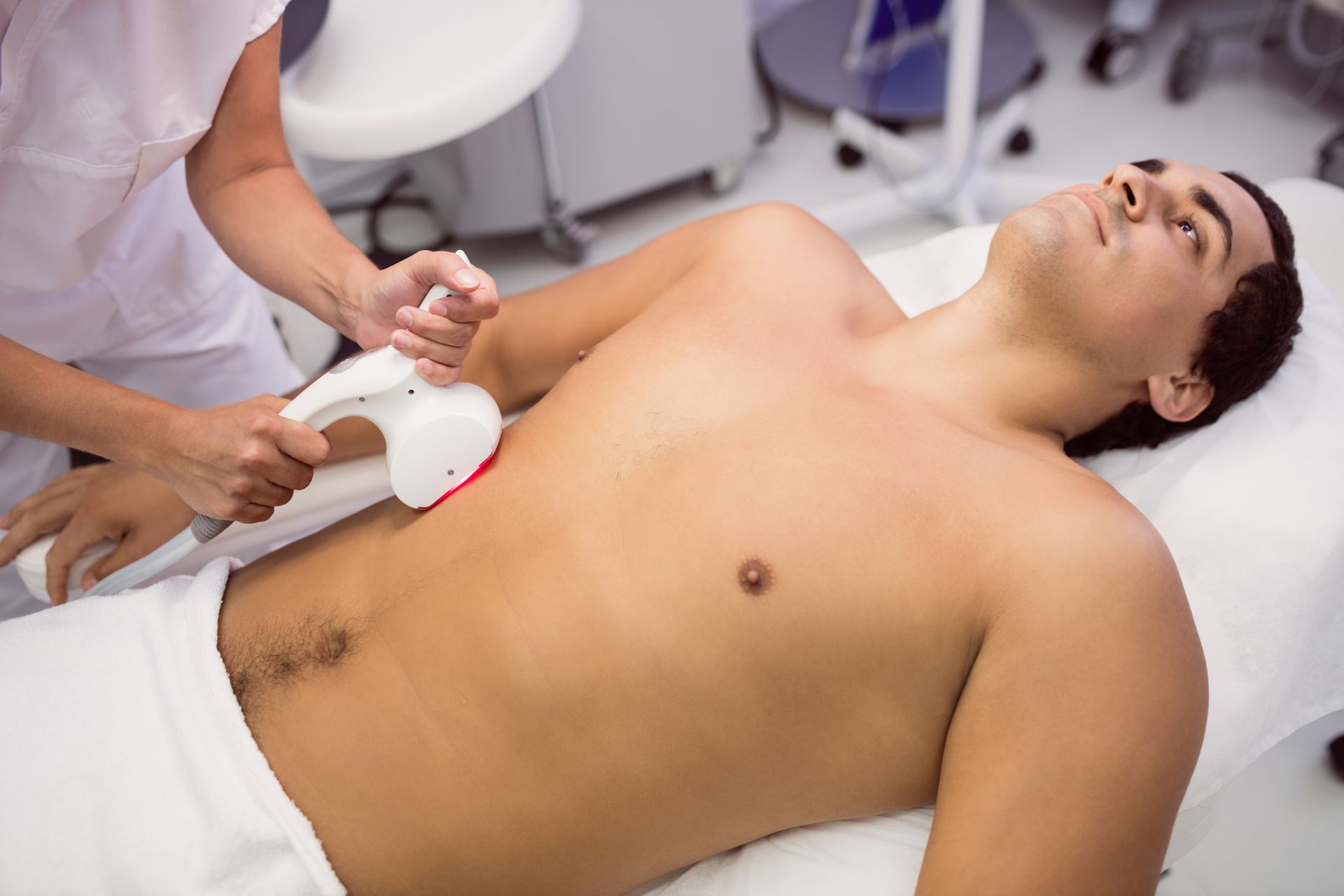Does Laser Hair Removal Last Forever?
Laser hair removal has revolutionized the way people approach unwanted hair, offering a promising solution for achieving smoother, hair-free skin. However, amidst the excitement surrounding this innovative treatment, a common question looms: Does laser hair removal last forever? To answer this question effectively, it's essential to delve into the intricacies of laser hair removal, exploring its mechanisms, efficacy, and common misconceptions. By unraveling the mysteries surrounding laser hair removal, we aim to equip readers with the knowledge needed to make informed decisions about their hair removal journey.
Laser Hair Removal Explained
Laser hair removal is a popular cosmetic procedure designed to reduce or eliminate unwanted hair growth by targeting hair follicles with concentrated beams of light. This treatment has gained widespread acceptance due to its effectiveness, convenience, and long-lasting results. To understand laser hair removal comprehensively, it's essential to explore how it works and the factors that influence its duration of results.
How Laser Hair Removal Works
Laser hair removal works on the principle of selective photothermolysis, where the laser emits a specific wavelength of light that is absorbed by the pigment (melanin) in the hair follicle. This absorbed light energy converts to heat, damaging the hair follicle while preserving the surrounding skin. Over time, the damaged follicles are unable to produce new hair, resulting in long-term hair reduction. Multiple treatment sessions are typically required to target hair follicles in different growth phases for optimal results.
Mechanism of Hair Growth
Understanding the natural hair growth cycle is crucial for comprehending the effectiveness of laser hair removal. The hair growth cycle consists of three phases:
Anagen (growth) phase:
The active phase where the hair follicle produces new hair.
Catagen (transitional) phase: The transitional phase between growth and rest, where the hair stops growing but is not yet shed.
Telogen (resting) phase: The resting phase where the hair is dormant and eventually sheds to make way for new hair growth.
Laser hair removal is most effective during the anagen phase when the hair follicle is actively growing and contains the highest concentration of melanin. Since not all hair follicles are in the anagen phase simultaneously, multiple sessions spaced over several weeks or months are necessary to target hair follicles in different stages of the growth cycle.
Duration of Results
Laser hair removal offers the potential for both temporary and permanent hair reduction, depending on various factors such as individual characteristics, treatment parameters, and adherence to post-treatment care. While laser hair removal can provide long-lasting results, it's essential to distinguish between temporary hair reduction and permanent hair removal. Temporary hair reduction refers to a significant decrease in hair growth that may last for an extended period but requires maintenance sessions to sustain results. In contrast, permanent hair removal entails the complete elimination of hair follicles, resulting in long-term hair-free skin.
Factors Affecting Longevity
Several factors influence the longevity of laser hair removal results, including:
Skin and hair color:
Laser hair removal is most effective for individuals with light skin and dark hair, as the laser targets melanin in the hair follicle.
Hormonal changes: Hormonal fluctuations, such as those during pregnancy or menopause, can affect hair growth and may require additional maintenance sessions.
Treatment parameters: The type of laser used, energy settings, and treatment technique can impact the effectiveness and longevity of results.
Adherence to post-treatment care: Proper skincare and sun protection following laser hair removal sessions can help maintain results and minimize the risk of adverse effects.
Longevity of Results
Laser hair removal offers the promise of long-term hair reduction, but the longevity of results can vary depending on individual factors and treatment parameters. Understanding the factors influencing the duration of results is essential for managing expectations and achieving satisfactory outcomes.
Individual experiences with laser hair removal may differ based on factors such as skin type, hair color, hormonal changes, and adherence to treatment protocols. While some individuals may achieve significant and long-lasting hair reduction after a series of laser treatments, others may require ongoing maintenance sessions to sustain results. It's crucial for individuals considering laser hair removal to have realistic expectations and understand that results may vary based on their unique characteristics and response to treatment.
Numerous clinical studies and research findings support the efficacy and long-term benefits of laser hair removal. These studies have demonstrated a significant reduction in hair growth following laser treatments, with many individuals experiencing up to 80% or more hair reduction in treated areas. While individual results may vary, the overall consensus from clinical research is that laser hair removal can provide long-lasting hair reduction with proper treatment and maintenance.
Realistic Expectations
Setting realistic expectations is key to a positive laser hair removal experience. While laser treatments can lead to significant hair reduction, complete and permanent removal of all hair follicles may not be achievable for everyone. It's essential for individuals to understand that multiple treatment sessions may be necessary to target hair follicles in different growth phases and achieve optimal results. Additionally, factors such as hormonal changes and genetic predispositions may influence the longevity of results.
Effective communication between individuals and their laser hair removal providers is crucial for managing expectations and ensuring satisfaction with treatment outcomes. Providers should thoroughly assess individual needs, explain the treatment process, and discuss potential outcomes and limitations before initiating laser hair removal. Open dialogue and realistic goal-setting can help individuals feel informed and empowered throughout their laser hair removal journey.
Maintenance sessions play a vital role in prolonging the results of laser hair removal. Even after achieving significant hair reduction, some hair follicles may become active again over time due to factors like hormonal changes or aging. Regular maintenance sessions can help target newly activated follicles and maintain smooth, hair-free skin in the long term. Providers typically recommend periodic touch-up sessions every few months or as needed to sustain results and address any regrowth effectively.
Factors Influencing Longevity
Several factors can influence the longevity of laser hair removal results, affecting the duration and effectiveness of hair reduction over time. Understanding these factors is crucial for individuals undergoing laser hair removal to manage expectations and optimize treatment outcomes.
Skin Type and Hair Color
Skin type and hair color are significant determinants of laser hair removal efficacy. The ideal candidates for laser hair removal typically have fair skin and dark, coarse hair, as the contrast between the pigment in the hair follicle (melanin) and the surrounding skin allows the laser to target the hair effectively. Individuals with lighter hair colors, such as blonde or gray, may have less predictable results, as the laser may not effectively target the hair follicle. Additionally, darker skin tones require specialized laser technologies to minimize the risk of pigmentation changes or skin damage during treatment.
Hormonal Changes
Hormonal changes can have a profound impact on hair growth and may influence the longevity of laser hair removal results. Hormonal fluctuations, such as those associated with pregnancy, menopause, or certain medical conditions like polycystic ovary syndrome (PCOS), can stimulate hair growth and alter the hair growth cycle. As a result, individuals experiencing hormonal changes may notice changes in the rate and pattern of hair growth post-treatment, necessitating additional maintenance sessions to address regrowth effectively.
Aging Process
The aging process can also affect the longevity of laser hair removal results. While laser hair removal can provide long-term hair reduction, it does not halt the natural aging process or prevent new hair follicles from forming over time. As individuals age, changes in hormone levels, skin elasticity, and hair growth patterns may influence the effectiveness of laser treatments and necessitate adjustments to maintenance schedules. Regular follow-up sessions can help address any new hair growth and maintain optimal results as individuals age.
Maintenance and Follow-up
Maintenance and follow-up sessions are essential components of laser hair removal treatment to prolong the longevity of results and ensure continued hair reduction over time. By adhering to a recommended maintenance schedule and attending follow-up sessions as advised by their laser hair removal provider, individuals can maximize the benefits of treatment and enjoy smoother, hair-free skin in the long term.
Follow-up sessions allow laser hair removal providers to assess treatment progress, target any remaining hair follicles, and address any concerns or changes in the individual's hair growth patterns. These sessions are an opportunity to fine-tune treatment parameters and tailor the approach to individual needs, ensuring optimal results and patient satisfaction. Follow-up sessions also provide an opportunity for providers to monitor any changes in skin condition or hair growth and make adjustments as needed to maintain safety and efficacy.
Conclusion
The longevity of laser hair removal results is influenced by various factors, including skin type, hair color, hormonal changes, and adherence to maintenance schedules. By understanding these factors and managing expectations, individuals can achieve significant and long-lasting hair reduction with laser hair removal treatments. Regular follow-up sessions and maintenance schedules are essential for sustaining results and addressing any regrowth effectively. While laser hair removal may not guarantee permanent hair removal for everyone, it offers a reliable solution for reducing unwanted hair growth and achieving smoother, more manageable skin in the long term.










